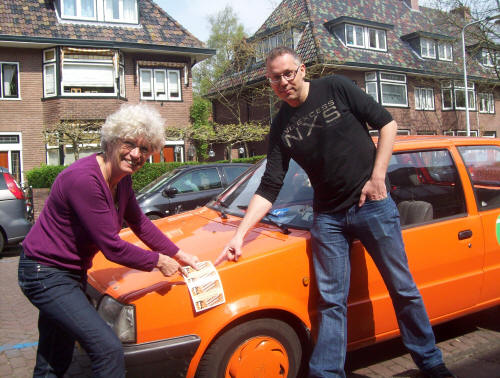Research
The Biomedical Electronics Foundation has contributed or contributes to, a.o., the following medical electronics developments:
-
a portable neurostimulator for better treatment of tinnitus (ringing in the ears), which can be controlled by means of a smart phone.
-
the objective determination of the extent of tinnitus.
-
a chip for a wearable ECG monitor.
-
a cheaper dual-channel hearing aid.
- a diagnostic and treatment device for pelvic floor dysfunctions.
News
Samprajani Rout (Delft University of Technology) received a grant to support her work on the design of a chip for the MyDiaPatch, a patch that enables long-term monitoring of certain heart rhythm disorders in a patient-friendly manner.
Walter Hamelink (The Hague University of Applied Sciences, Delft) received a grant to support his work on the design of a wireless reader that reads out a wearable autonomous wireless ECG tag. The ECG tag is being energized by means of radio-frequency (RF) energy and reads the electrocardiogram (ECG or EKG) and transmits this vital-sign information wirelessly without the need for a battery.
Senad Hiseni (DUT) has received a travel and accommodation grant to facilitate a 3-month stay at Mahanakorn University of Technology (MUT) to collaborate with Dr. Chutham Sawigun on the design of an integrated circuit that can reliably and objectively detect tinnitus in patients. This work should ultimately pave the way to a closed-loop neuromodulation solution for treatment of severe tinnitus with a larger success rate.
Jory Koolwijk (Hanze-Hogeschool Groningen) has received a stipend to support his work on the design of a stimulation and recording platform for animal experiments in order to develop better speech coding strategies and fitting of cochlear implants. This work is a collaboration between Delft University of Technology and the Leiden University Medical Center, ENT dept.
Joeri Willemse (Haagse Hogeschool) has received a stipend to support his work on the design and implementation of a platform for the future development of closed-loop neurostimulation strategies.
Joeri Biesbroek (DUT) has received a stipend to support his work on the development of a 100-channel neurostimulator for scientific research on the cerebellum as conducted at the Erasmus University Rotterdam, Neuroscience dept.
Luch Gutierrez (DUT) has received a stipend to support his exploritatory work on the research on and development of wireless energy transfer to power up implantable devices. In combination with a rechargeable battery this should reduce the form factor of future implantable devices dramatically, so that they can be implanted at a larger variety of places without the need for risky and painful leads.
The Biomedical Electronics Foundation supported the Orange Trophy in its action for Dance4Life and Miep and Christy of Team DrivingCrazy in particular. On May 3, 2012, Miep (at left) received the donation from Wouter (at right) and fixed two stickers of the Biomedical Electronics Foundation on both sides of the car.

On March 16, Ir. Senad Hiseni received an award from the Biomecial Electronics Foundation for excellence in research on implantable medical devices with a high scientific, engineering, clinical and societal relevance.

